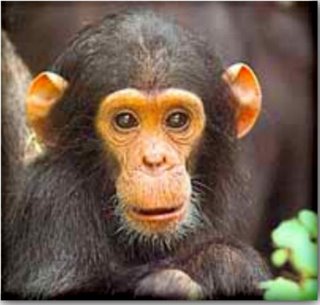Pig Island by Mo Hayder
.jpg) Trudi and I recently attended a cocktail party at the gallery of SoHo artist Alex Beard. While there, we met Bryan Adams, a Publicist with FAB Communications. When the conversation turned to books, Bryan mentioned that he always has one with him. Since Trudi and I share his passion for page turning, we felt an immediate connection.
Trudi and I recently attended a cocktail party at the gallery of SoHo artist Alex Beard. While there, we met Bryan Adams, a Publicist with FAB Communications. When the conversation turned to books, Bryan mentioned that he always has one with him. Since Trudi and I share his passion for page turning, we felt an immediate connection.Bryan suggested that we read Pig Island by Mo Hayder. He described this novel as "interesting dark fiction". I just finished it, and he was right.
That's why the movie "Jaws" was such a nail biter. You didn't even get a glimpse of the shark until the third reel. But just knowing that he was out there under the waves, hunting for human hors d'oeuvres, petrified moviegoers.
The book continues with engaging story lines that held my attention on every page. And the plot twist at the end would make Agatha Christie envious!
Mo Hayder has written a number of novels, including Devil of Nanking, Birdman, and The Treatment. You can check these out at the Mo Hayder Website. In addition to compelling plots, I am captivated with her prose style. She often uses short sentences to build story structure. These are easy to assimilate because each sentence usually contains one idea. Hayder builds these terse elements into a complex drama the same way that a mason builds a brick wall - by carefully placing one unit on top of another.
The author also excels at description. She creates powerful imagery, which substantially enhances the narrative thread. For example Hayder depicts a small coastal bay as "a cup of tea". And the sky - "tendrils of cloud were splitting like mercury, running away in fragments across the moon." This is pure poetry.
Summary: I give Pig Island 4 bananas on the Monkey Prose Literature Scale. This rating system runs from 0 bananas (It's not even good enough to line a bird cage.) to 5 bananas (God handed me this book on Mt. Sinai.) This novel grabbed me in the first few pages, and I couldn't put it down. I read it in a weekend. And the shocking revelation at the end is unforgettable. If you enjoy a gripping psychological thriller, then I highly recommend Pig Island.
.gif)










.jpg)
2 comments:
Cuagach Eilean means Lame Island. Pig island is Eilein na Muic.
I saw the plot twist at the end coming half way through the book
First half of the book, gripping. Second half of the book dull, pedestrian and predictable
Post a Comment